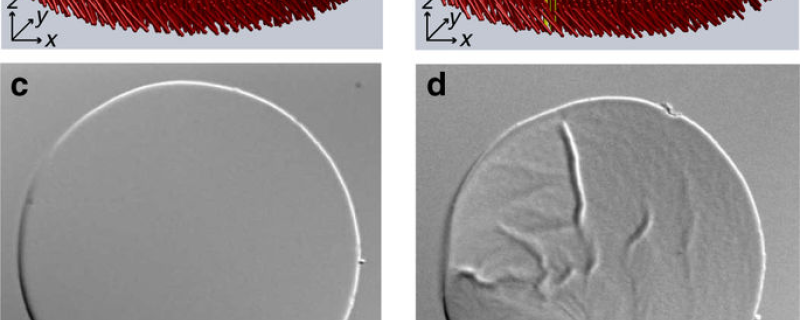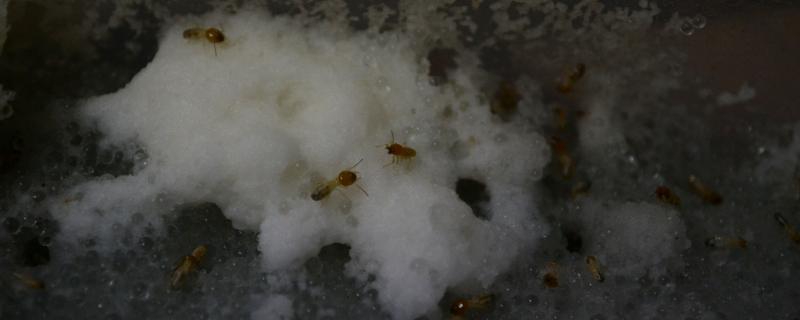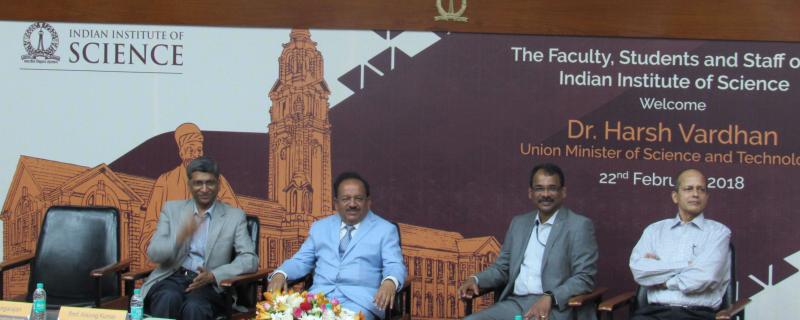Tuberculosis(TB) has claimed 1.8 million human lives globally according to World Health Organization, in 2015.
Archives
Dr. Attreyee Ghosh is a solid earth geophysicist at the Indian Institute of Science, Bangalore, talks about the advancements made in science in the recent years and how these have helped us in understanding our planet better.
The 28th of February every year is celebrated across the country as ‘National Science Day’ to commemorate the discovery of ‘Raman effect’ by Sir C V Raman. About 90 years ago, Sir Chandrasekhara Venkata Raman, had a ‘eureka moment’ when he discovered how light scattered when it travelled in a transparent medium.
Researchers from the Indian Institute of Science (IISc), Indian Institute of Technology Bombay (IITB) and the Raman Research Institute (RRI) have investigate how materials undergo such deformations, and how they can be controlled to manufacture materials with the desired properties.
“Honesty is the best policy - when there is money in it”, quipped Mark Twain.
Are you a fan of detective TV shows? If so, you will know of DNA Fingerprinting as a tool to identify a criminal.
ನೀವು ಪತ್ತೇದಾರಿ ಕಾದಂಬರಿಗಳ, ಟಿವಿ ಕಾರ್ಯಕ್ರಮಗಳ ಅಭಿಮಾನಿಯೇ? ಹಾಗಿದ್ದಲ್ಲಿ, ಅಪರಾಧಿಯನ್ನು ಗುರುತಿಸಲು ಡಿಎನ್ಎ ಬೆರಳಚ್ಚು ವಿಧಾನವು ಅತ್ಯುಪಯುಕ್ತ ಸಾಧನ ಎಂದು ನೀವು ಖಂಡಿತ ತಿಳಿದಿರುತ್ತೀರಿ.
Termites are known to be efficient farmers who farm a kind of fungus in their colonies to digest the wood that they feed. Scientists from the Indian institute of Science, Bangalore and École Nationale Supérieure de Chimie de Montpellier, Montpellier, France, explore whether the termites prefer a certain species of fungus and if they can identify weed fungi and remove them.
Dr. Harsh Vardhan, Hon’ble Union Minister of Science and Technology, Environment, Forest and Climate Change and Earth Sciences visited Indian Institute of Science (IISc), Bengaluru to inaugurate the supercritical carbon dioxide Brayton cycle test loop facility. He was welcomed by Prof. Anurag Kumar, Director IISc, Prof.
Erik Solenheim, Executive Director of the United Nations Environment Programme visited Center for Ecological Sciences at Indian Institute of Science (IISc), Bengaluru to deliver a talk about the interface of science and policy.









